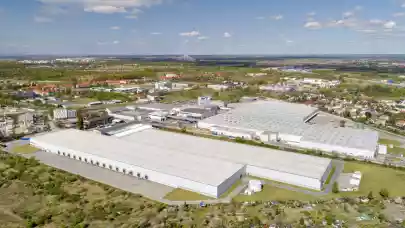
Bucharest’s office stock edged close to 3.4 million sqm at the end of 2023, following the completion of projects with a combined area of 110,000 sqm last year. However, the market will see fewer deliveries by the end of 2025 as developers have put projects on hold due to uncertainties around demand caused by the adoption of hybrid work.
The pipeline for this year in Bucharest is just around 16,000 sqm and only some 33,000 sqm might be delivered in 2025.
The slowdown in deliveries was accompanied by a slowdown in new demand, down by around 6%, to 115,000 sqm.
“This figure is more or less in line with the yearly average seen in the past cycle. It is noteworthy, on the other hand, that leasing deals generated by new demand, namely the type of contracts that improve the general occupancy of the market, so excluding relocations from competitive stock or renewals, made up less than 30% of total leasing deals versus 40-50% in the years before the pandemic. We would normally expect to see such a growing prevalence of renewals over new demand in mature markets, not in emerging ones like Bucharest’s,” said Victor Coșconel, Head of Leasing | Office & Industrial Agencies at Colliers.
All in all, the total office demand saw an increase of some 44% versus 2022, to around 400,000 sqm, easily surpassing the previous record of 365,000 sqm set in 2019, according to Colliers data.
The biggest transaction of the year involved Oracle, known as one of the largest tenants in Bucharest, which reduced its total office space by about half, which is 26,000 sqm, distributed in two separate projects in the Floreasca Barbu Văcărescu submarket. At the same time, Honeywell renewed its lease for 24,000 sqm without making any changes to it. In another notable case, Adobe doubled its previously occupied surface to reach 17,500 sqm.
Monthly rents have climbed to €22 per sqm in the CBD office area, while the vacancy rate in the city rose to 15.5% due to Oracle’s decision to cut its leased space.



